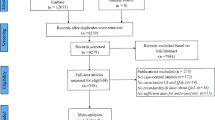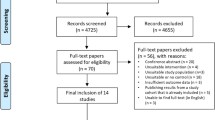Abstract
Background
Caregiver burden is documented in several chronic diseases, but it has not been investigated in celiac disease (CD).
Aims
We aim to quantify the burden to partners of CD patients and identify factors that affect the perceived burden.
Methods
We surveyed patients with biopsy-proven CD and their partners. Patients completed CD-specific questions, including the validated Celiac Symptom Index (CSI) survey. Partners completed the validated Zarit Burden Interview (ZBI) and questions regarding sexual and relationship satisfaction. Univariable and multivariable analyses were used to assess the association between demographics, CD characteristics, and partner burden.
Results
In total, 94 patient/partner pairs were studied. Fifteen patients (16 %) reported a CSI score associated with a poor quality of life, and 34 partners (37 %) reported a ZBI score corresponding to mild-to-moderate burden. Twenty-two partners (23 %) reported moderate-to-low overall relationship satisfaction, and 12 (14 %) reported moderate-to-low sexual satisfaction. The degree of partner burden was directly correlated with patient CSI score (r = 0.27; p = 0.008), and there were moderate-to-strong inverse relationships between partners’ burden and relationship quality (r = −0.70; p < 0.001) and sexual satisfaction (r = −0.42; p < 0.001). On multivariable logistic regression, predictors of mild-to-moderate partner burden were low partner relationship satisfaction (OR 17.06, 95 % CI 2.88–101.09, p = 0.002) and relationship duration ≥10 years (OR 14.42, 95 % CI 1.69–123.84, p = 0.02).
Conclusions
Partner burden is common in CD, with more than one-third of partners experiencing mild-to-moderate burden. Partner burden is directly correlated with patient symptom severity, and it increases with poorer sexual and relationship satisfaction. Healthcare providers should address relationship factors in their care of patients with CD.




Similar content being viewed by others
Abbreviations
- IBS:
-
Irritable bowel syndrome
- CD:
-
Celiac disease
- GFD:
-
Gluten-free diet
- CSI:
-
Celiac Symptom Index
- RS:
-
Relationship Scale
- ZBI:
-
Zarit Burden Interview
References
Zarit S, Reever K, Bach-Peterson J. Relatives of the impaired elderly: correlates of feelings of burden. Gerontologist. 1980;20:649–655.
Jacobi C, van den Berg B, Boshuizen H, Rupp I, Dinant HJ, van den Bos GAM. Dimension specific burden of caregiving amongst partners of RA patients. Rheumatology. 2003;42:1226–1233.
Reich J, Olmsted E, van Puymbroeck C. Illness uncertainty, partner caregiver burden and support and relationship satisfaction in fibromyalgia and OA patients. Arthritis Rheum. 2006;55:86–93.
McConaghy R, Caltabiano M. Caring for a person with dementia: exploring relationships between perceived burden, depression, coping and well-being. Nurs Health Sci. 2005;7:81–91.
Wong R, Drossman D, Weinland S, et al. Partner burden in irritable bowel syndrome. Clin Gastroenterol Hepatol. 2013;11:151–155.
Institute AGA. AGA institute medical position statement on the diagnosis and management of celiac disease. Gastroenterology. 2006;131:1977–1980.
Green P, Jabri B. Coeliac disease. Lancet. 2003;362:383–391.
Green P, Cellier C. Celiac disease. N Engl J Med. 2007;357:1731–1743.
Ludvigsson JF, Montgomery SM, Ekbom A, Brandt L, Granath F. Small-intestinal histopathology and mortality risk in celiac disease. JAMA. 2009;302:1171–1178.
Hallert C, Granno C, Hulten S, et al. Living with coeliac disease: controlled study of the burden of illness. Scand J Gastroenterol. 2002;37:39–42.
Lee AR, Ng DL, Diamond B, Ciaccio EJ, Green PHR. Living with coeliac disease: survey results from the USA. J Hum Nutr Diet. 2012;25:233–238.
Lee AR, Ng DL, Zivin J, Green PH. Economic burden of a gluten-free diet. J Hum Nutr Diet. 2007;20:423–430.
Mustalahti K, Lohiniemi S, Collin P, Vuolteenaho N, Laippala P, Maki M. Gluten-free diet and quality of life in patients with screen-detected celiac disease. Eff Clin Pract. 2002;5:105–113.
Johnston S, Rodgers C, Watson R. Quality of life in screen-detected and typical coeliac disease and the effect of excluding dietary gluten. Eur J Gastroenterol Hepatol. 2004;16:1281–1286.
Hallert C, Granno C, Grant C, et al. Quality of life of adult coeliac patients treated for 10 years. Scand J Gastroenterol. 1998;33:933–938.
Ciacci C, D’Agate C, De Rosa A, et al. Self-rated quality of life in celiac disease. Dig Dis Sci. 2003;48:2216–2220.
Häuser W, Stallmach A, Caspary WF, Stein J. Predictors of reduced health-related quality of life in adults with coeliac disease. Aliment Pharmacol Ther. 2007;25:569–578.
Addolorato G, Mirijello A, D’Angelo C, et al. Social Phobia in coeliac disease. Scand J Gastroenterology. 2008;43:410–415.
Ciacci C, De Rosa A, de Michele G, et al. Sexual behaviour in untreated and treated coeliac patients. Eur J Gastroenterol Hepatol. 1998;10:649–651.
Leffler D, Dennis M, Edwards George J, et al. A validated disease-specific symptom index for adults with celiac disease. Clin Gastroenterol Hepatol. 2009;7:1328–1334.
Hendrick S. A generic measure of relationship satisfaction. J Marriage Fam. 1988;50:93–98.
Ankri J, Andrieu S, Beaufils B, Grand A, Henrard JC. Beyond the global score of the ZBI: useful dimensions for clinicians. Int J Geriatr Psychiatry. 2005;20:254–260.
Higginson I, Gao W. Caregiver assessment of patients with advanced cancer: concordance with patients, effects of burden and positivity. Health Qual Life Outcomes. 2008;6:42.
Hebert R, Bravo G, Preville M. Reliability, validity and reference values of the Zarit Burden Interview for assessing informal caregivers of community-dwelling older persons with dementia. Can J Aging. 2000;4:494–507.
Rao S, Yu S, Fedewa A. Systematic review: dietary fibre and FODMAP-restricted diet in the management of constipation and irritable bowel syndrome. Aliment Pharmacol Ther. 2015;12:1256–1270.
Blanchard EB, Lackner JM, Jaccard J, et al. The role of stress in symptom exacerbation among IBS patients. J Psychosom Res. 2008;2:119–128.
Dorn SD, Hernandez L, Minaya MT, et al. Psychosocial factors are more important than disease activity in determining gastrointestinal symptoms and health status in adults at a celiac disease referral center. Dig Dis Sci. 2010;55:3154–3163.
Abu Daya H, Lebwohl B, Lewis SK, Green PH. Celiac disease patients presenting with anemia have more severe disease than those presenting with diarrhea. Clin Gastroenterol Hepatol. 2013;11:1472–1477.
Author contributions
The guarantor of this manuscript is Peter HR Green. Specific author contributions include: Abhik Roy contributed to study concept and design, acquisition of data, analysis and interpretation of data, drafting of the manuscript, and critical revision of the manuscript for important intellectual content; Maria Minaya, Milka Monegro, Jude Fleming, Reuben K Wong, Suzanne Lewis, Benjamin Lebwohl, Peter HR Green contributed to study concept and design, acquisition of data, and critical revision of the manuscript for important intellectual content. All authors approved the final version of the manuscript.
Author information
Authors and Affiliations
Corresponding author
Ethics declarations
Conflict of interest
Abhik Roy, Maria Minaya, Milka Monegro, Jude Fleming, Reuben K Wong, Suzanne Lewis, Benjamin Lebwohl, and Peter HR Green declare that they have no conflict of interest (financial, professional, or personal) that is relevant to the manuscript.
Rights and permissions
About this article
Cite this article
Roy, A., Minaya, M., Monegro, M. et al. Partner Burden: A Common Entity in Celiac Disease. Dig Dis Sci 61, 3451–3459 (2016). https://doi.org/10.1007/s10620-016-4175-5
Received:
Accepted:
Published:
Issue Date:
DOI: https://doi.org/10.1007/s10620-016-4175-5




